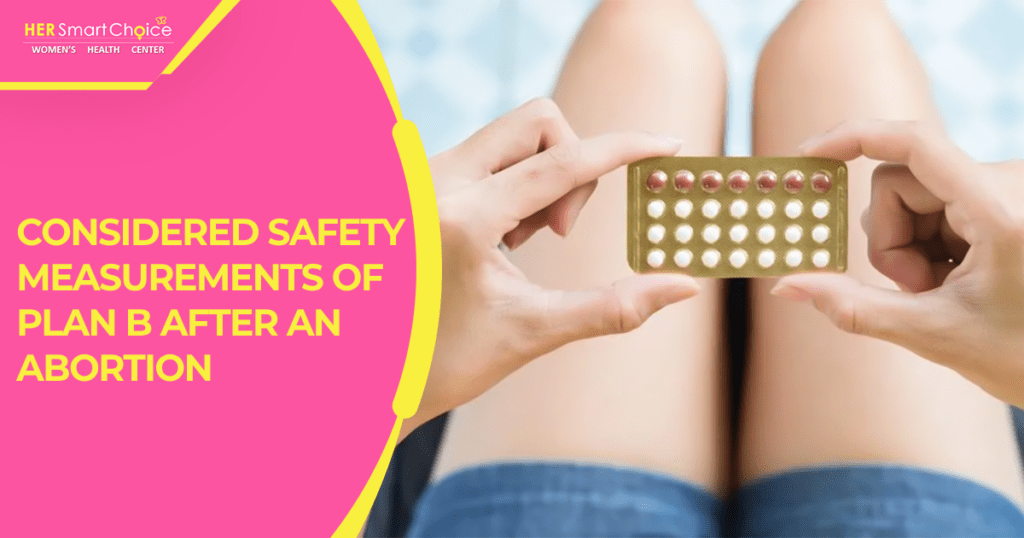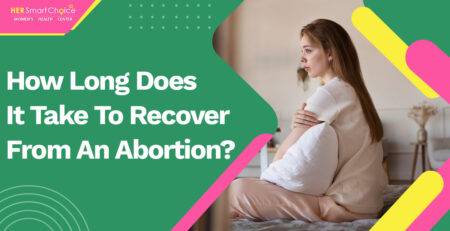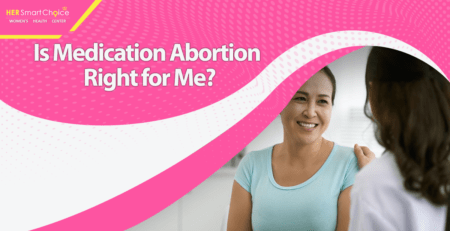Is It Safe To Take Plan B After An Abortion?

The complexity comes with the abortion decision as it is deeply personal and can come with its own set of concerns and questions. One concern that arises among women is whether taking emergency contraception like Plan B is safe or not. Moreover, if you are looking for medical abortion pills in Los Angeles then you can receive free abortion pills from Her Smart Choice. Let’s explore more to address your concerns and provide clarity. Further, you may also learn the safe way of using Plan B after an abortion and when it is necessary to use it.
What Do You Mean By Plan B And How It Works?
Before we go into detail about whether it’s safe to use Plan B after an abortion, let’s understand what Plan B is and how it works. Plan B is a type of emergency contraception, often referred to as the “morning-after pill.” It’s designed to prevent pregnancy when taken within a specific timeframe after unprotected intercourse or contraceptive failure. Plan B primarily works by delaying or preventing ovulation, the release of an egg from the ovaries.
Considered Safety Measurements of Plan B After an Abortion
 Now, let’s address the main question: Is it safe to take Plan B after an abortion? The answer is generally yes, but there are a few important considerations that you need to know:
Now, let’s address the main question: Is it safe to take Plan B after an abortion? The answer is generally yes, but there are a few important considerations that you need to know:
Timing Matters: Plan B is intended for use after unprotected sex or contraceptive failure. It may not be necessary after a surgical abortion in California or when using medical abortion pills prescribed by a healthcare provider.
Medical Advice: Before taking Plan B after an abortion, it’s essential to consult with your healthcare provider. They have the expertise to offer tailored advice according to your particular circumstances.
Potential Overlap: In some cases, a woman might be uncertain about the success of a medical abortion or whether the procedure was effective. If there’s any doubt or concern about a potential ongoing pregnancy, your healthcare provider can advise on whether Plan B is appropriate.
Medication Interaction: If you’re already taking prescribed medications as part of the abortion process, it’s crucial to discuss potential interactions with Plan B with your healthcare provider.
When Might Plan B Be Necessary After an Abortion?

There are specific scenarios where a woman might consider taking Plan B after an abortion:
Missed Dose: If you’re using free abortion pills, following the prescribed regimen is essential for effectiveness. Missing a dose or not taking the medication as directed might raise concerns about the abortion’s success.
Contraceptive Failure: If you had unprotected intercourse shortly after an abortion, experienced a condom break, or had any other contraceptive failure, Plan B might be a suitable option to prevent unintended pregnancy.
Uncertainty: In some cases, a woman may be unsure whether the abortion was successful. This uncertainty can lead to anxiety about a potential ongoing pregnancy.
Consult Your Healthcare Provider
While Plan B can be a helpful option to prevent pregnancy after unprotected sex or contraceptive failure, it’s crucial to consult your healthcare provider for guidance. They can evaluate your unique circumstances and offer personalized guidance. Here are some steps to keep in mind:
Discuss Your Concerns: Openly share your concerns with your healthcare provider. They can help you determine whether Plan B is necessary based on your situation.
Timing: Consider the timing of your abortion and the potential need for emergency contraception. Your healthcare provider can advise on when it’s appropriate to take Plan B.
Medication Interaction: If you’re currently taking medications as part of your abortion process, inquire about any potential interactions with Plan B.
Follow-Up: After taking Plan B, it’s essential to follow up with your healthcare provider to ensure your health and well-being. They can address any concerns or questions that may arise.
Briefing
Overall, the decision to take Plan B after an abortion is a case-by-case consideration. While it can be a safe and effective option to prevent unintended pregnancy, it’s essential to consult your healthcare provider for personalized guidance.
Your provider can assess your specific situation and provide recommendations that prioritize your health and well-being. Remember, your healthcare provider is there to support you, answer your questions, and ensure you receive the right care.










